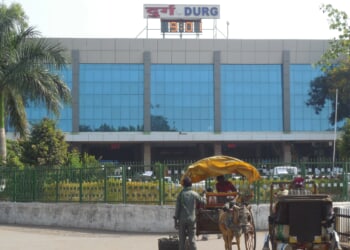Op-ed views and opinions expressed are solely those of the author.
Almost a week has passed since September 11, a day which should be one of prayer, of national mourning without ball games or frivolity. Like December 7, 1941–Pearl Harbor– it should be seared into the nation’s soul. To those who were there, the memory will not fade; it cannot, the anguish can only deepen.
For me, September 11 began as a routine Tuesday, the bus to the Pentagon, then up to the office, 5D928– fifth floor, D Ring, 9th corridor, Room 28– Air Force Legislative Liaison, where we managed testimony and other congressional matters for the Air Force Secretariat and Chief-of-Staff. Had the terrorists crashed Flight 77 into our section, the river side of the building, the entire senior defense leadership of the country, and we with them, would no longer walk the earth.
I walked in about nine, and no sooner had I taken off my jacket than the phone rang. It was Ed Roeder, a Washington journalist of long acquaintance. “The Trade Center’s been hit,” he said. “You’re full of it,” I replied, “No, go look!” I walked over to the office TV, my Air Force colleagues staring at the screen, dumbfounded as smoke poured out of two of New York’s most majestic landmarks.
My first job after grad school was in 2 World Trade Center with the N.Y. Attorney General’s office. I knew the area well. Hurrying to my desk, I called a friend whose sister-in-law worked in the Trade Center. She was away on jury duty. As we talked, there was a sudden, deafening bang, so loud he heard it through the phone, “Gotta go, we’ve been hit.” I hung up, closed my briefcase, put on my jacket, and left. Everyone was strangely calm. In the hallway, I ran into one of our lieutenants who had been in the ladies’, thinking, as she said, we were next, when the plane hit. “I don’t have my purse,” she said. “Forget it, we’re outta here.” We reached the concourse as smoke rolled down the A ring corridor. Seeing a Pentagon cop, I said, “It’s filling with smoke, get them out of there!” We went down the stairs and out through what had been the old bus depot. Coming into the daylight, a plume of black smoke rose to our far right as secondary explosions continued. Thinking nukes, I said, “We’ve gotta get out of here as fast and as far as we can.” I glanced at two Arab-looking men walking toward the Pentagon, pointing them out to the cops. I instinctively ordered, “Follow them!”
All 395 traffic into Washington was stopped and turned south. Cops put evacuees into every vehicle they could grab. An Air Force couple who had seen the plane go in gave us a lift to my place. I drove the lieutenant to her apartment, came home, and walked over to Ramparts, my neighborhood saloon. Calls came in on my cell and landline from people I hadn’t spoken to in ages. Later that day, I called the Army operations center and offered my help. “We have enough, sir,” said the NCO. It was a couple of days before I could report back to work.
Over the next weeks, friends back in Bay Ridge (Brooklyn) told me what they saw and did. My oldest friend (now deceased), Ronnie Varca, said an Arab pizza place owner was dancing in the street, and within the month, the shop was out of business. Ronnie was a guard at the American Indian Museum at the old Customs House on the Battery. Lower Manhattan was closed off, subways shut down, and transportation at a standstill. Infuriated at what had happened, determined to do something, he managed to take the subway to 14th Street, then walked five miles to the Customs House to relieve guards who had been on duty since the attack. A grade and high school classmate of Arab Christian background said all the Muslims in the neighborhood had disappeared. Another classmate, sometime later, saw children from the Muslim school crashing paper airplanes into a building. Their teacher admonished them not to do it, “out here.” An old Jersey City friend, who had helped in the evacuation, also saw Muslims dancing in the street. Troubling times were just beginning.
For the next year, I was on and off active duty, working on plans. Then on December 3rd, the call came: “You’re being mobilized.” We reported to Ft. Bragg on December 15th, and by January 15th, we were in Kuwait. “The Great Iraq War, Part II” was about to begin.
DONATE TO BIZPAC REVIEW
Please help us! If you are fed up with letting radical big tech execs, phony fact-checkers, tyrannical liberals and a lying mainstream media have unprecedented power over your news please consider making a donation to BPR to help us fight them. Now is the time. Truth has never been more critical!
Success! Thank you for donating. Please share BPR content to help combat the lies.
We have no tolerance for comments containing violence, racism, profanity, vulgarity, doxing, or discourteous behavior. Thank you for partnering with us to maintain fruitful conversation.





![Gavin Newsom Threatens to 'Punch These Sons of B*thces in the Mouth' [WATCH]](https://www.right2024.com/wp-content/uploads/2025/08/Gavin-Newsom-Threatens-to-Punch-These-Sons-of-Bthces-in-350x250.jpg)
![ICE Arrests Illegal Alien Influencer During Her Livestream in Los Angeles: ‘You Bet We Did’ [WATCH]](https://www.right2024.com/wp-content/uploads/2025/08/ICE-Arrests-Illegal-Alien-Influencer-During-Her-Livestream-in-Los-350x250.jpg)








